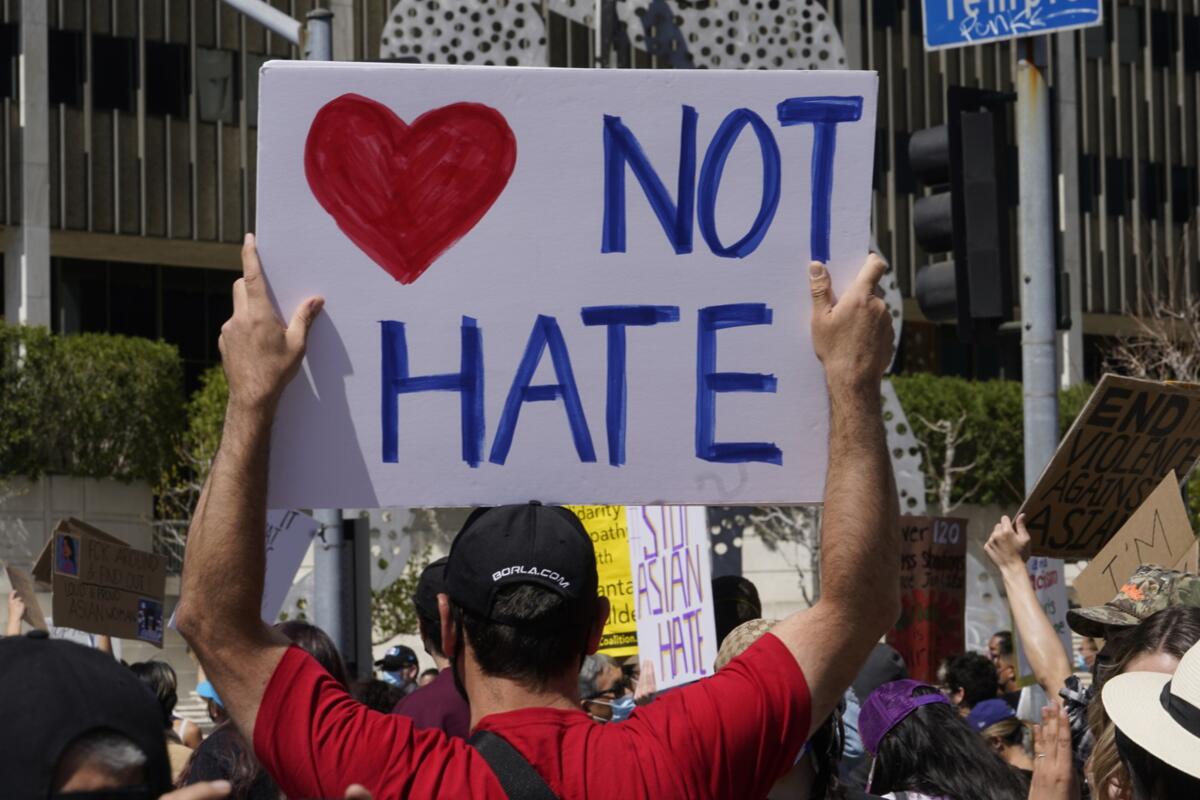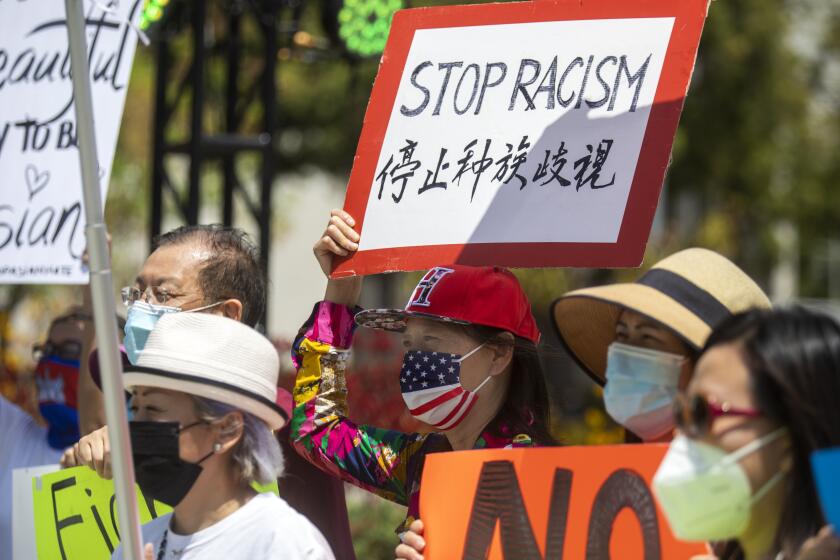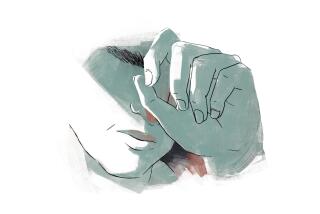It’s been one year since California launched a hate-crime hotline. Here’s what’s happened so far

In the year since California launched a hotline for reporting hate crimes, most of the calls were related to race or ethnicity, with 26.8% of calls citing anti-Black bias. The second- and third-most cited incidents involved anti-Latino and anti-Asian bias, state officials announced Monday.
The statewide hotline was created to address the uptick in hate crimes across California during the COVID-19 pandemic, by compiling a comprehensive database to track incidents and offer an alternative to police intervention. In the year since it debuted, the state has received 1,020 reports of hate crimes — including discrimination and harassment claims. Most claims were reported from residences, like at homes or apartment complexes, and at the workplace.
“This program is new. And so this data should not be treated as represented of all acts of hate in our state. We have more work to do,” Kevin Kish, director of the California Civil Rights Department, said during a Monday news conference.
When someone calls they can ask to be connected to mental health services, to get help filing a civil rights complaint, or to get redirected to legal services.
This one-year mark comes on the heels of reported upticks in crimes against Jewish and Palestinian communities and as the state Legislature deliberates a reparations package that aims to remedy the legacy of slavery.
“There is no question that the work on reparations is directly linked to the work on combating hate,” said Becky Monroe, the deputy director for strategic initiatives and external affairs at the California Civil Rights Department. She called the work on hate crime reporting “central” to the state’s reparations plans.
Race and ethnicity bias were the most cited reasons for calls, accounting for more than one-third of the total calls received, the state’s data show. The second most reported category was related to gender identity, accounting for 15.1% of calls, while sexual orientation-related calls accounted for 10.5%.
Calls related to anti-Jewish violence accounted for 36.9% of religious targeting calls. The second most reported was anti-Hindu bias, which accounted for 23.3% of calls. Anti-Muslim bias accounted for 14.6%, according to the data state officials released.
L.A. County documented 786 hate crime victims in 2021 — the most since 2002. Blacks, Latinos, Jews and LGBTQ people were among the most-targeted groups.
Asked if reports of religious-based hate crimes rose in the aftermath of the terrorist attacks in Israel on Oct. 7 and the ensuing war against Hamas, Monroe said, “We absolutely did see an increase in anti-Jewish, anti-Muslim, anti-Arab American, anti-Palestinian. We saw all of these increase. ... But I hesitate to say I can give you one cause for that.”
She said October was also around the time when they were publicly campaigning for the hotline.
People who dial (833) 866-4283 — or 833-8NOHATE — can reach trauma-informed care coordinators who work for the program. Translation is offered in more than 200 languages.
More to Read
Sign up for Essential California
The most important California stories and recommendations in your inbox every morning.
You may occasionally receive promotional content from the Los Angeles Times.












